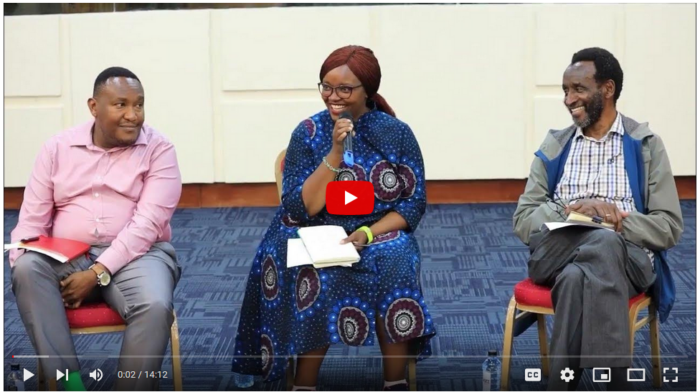A historic global agreement on tax is under threat. Here’s why.

Kenyan experts discuss development aid in their country
June 30, 2023
Both donor and recipient must be accountable for international aid
November 13, 2023Civil society estimates that every year, USD 312 billion are lost in unpaid corporate taxes around the world. By using legal loopholes, many companies avoid paying their dues – often to Southern countries that host their operations and provide cheap labour. This happens because the governments of those countries are unable to enforce their fiscal policies, and there is still no global tax agreement to protect their interests.
But something is about to change. After decades of attempts by the Global South and thanks to the efforts of African countries, the United Nations is set to discuss the possibility of having its first-ever Tax Convention at the General Assembly in September. This will be a first historic step towards reforming the international tax system and levelling the playing field.
Obviously, the stakes are colossal and many interest groups are opposing resistance to this landmark change. I discuss what’s happening with Abdul Muheet Chowdhary, an international tax expert from the South Centre, a think tank representing 55 countries from Africa, Asia, Latin America and the Caribbean. The South Centre also supports the ‘Group of 77’ or G77 and China, which today includes 134 Southern countries.
Hi Abdul, you have been following the global tax discussions very closely for years. Are we really so close to reaching a historic turning point with the UN Tax Convention in September?
Yes and no. The good news is that for the first time the UN General Assembly has decided to begin negotiations on tax cooperation and now UN Secretary-General is preparing options to take this work forward. With enough support from Member States, the Convention can shift the decision-making power on international tax standards from the OECD [the Organisation for Economic Cooperation and Development, an intergovernmental organisation based in Paris that primarily represents the interests of the world’s richest countries] to the UN, which has been the demand of the developing world for decades.
Traditionally, the power to set global tax rules does not sit with the UN but with the OECD. Enforcing the UN Tax Convention would lead to a power shift in favour of the broader UN community. It is not a coincidence – and this is the less positive news – that we are witnessing a parallel negotiation in Paris at the same time as the UN General Assembly is preparing for its historic session. As we speak, the OECD is negotiating a separate agreement with many Southern countries as part of its “Inclusive Framework”.
Once finalised, this agreement, called the Amount A Multilateral Convention, is supposed to be the OECD’s solution for taxing especially the digital economy, e.g. the ‘Big Tech’ like Google and Amazon. While this solution would be ground-breaking in that it would be the first multilateral convention of its kind, the language used minimises the tax obligations of the digital economy and can significantly limit the taxing rights of Southern countries.
The OECD is trying to finalise Amount A and open it for signature as soon as possible, maybe even as early as October or November.
If enough Southern governments sign it, this OECD agreement will kill the move towards a UN Tax Convention because Southern governments will find it difficult to support both Amount A and the UN Tax Convention at the same time. 2023 may go down in history as the year of global tax failure.
Why do you think the OECD Convention will undermine UN tax efforts?
The Amount A agreement would not allow Southern governments to tax companies – especially multinationals headquartered in the Northern hemisphere – as equitably as the United Nation’s alternative solution. For example, estimates from the South Centre and the African Union’s Coalition for Dialogue on Africa show that developing countries would gain more than twice if they followed UN Tax Committee regulations (Article 12B) instead of Amount A rules. The 84 countries representing the combined membership of the African Union and the South Centre would get $5 billion under Amount A and $12 billion under UN regulations.

Agreeing a UN Tax Convention would also bring higher levels of transparency, for example by requesting that multinational enterprises publicly disclose how much tax they pay to each country where they operate – a practice known as ‘Country-by-Country reporting’. This seems common sense and yet today, it is still not possible to access financial information on where many multinationals make their profits or run their operations.
This information is only available in aggregate numbers but if you want to go country by country, it’s not public, which means we have no way of knowing if individual countries receive their fair share of tax revenues.
So is the Amount A Convention a done deal already?
Foreign Affairs and Finance Ministers in Southern countries will soon be scratching their heads to decide whether to sign Amount A or not, once it is publicly released and open for signature. It is not an easy decision. There is huge pressure on them to sign. For many of these countries, there are direct implications for the development aid [Overseas Development Assistance] they receive from OECD Member States. They risk losing that aid if they decide not to sign. Elsewhere, there have already been reports of other Northern-based financial institutions, such as the International Monetary Fund (IMF), pressurising countries like Sri Lanka into dropping their plans for a Digital Services Tax and signing onto Amount A. Institutions such as the IMF and the OECD are ultimately controlled by the same set of countries.
However, nothing is set in stone yet. Other options might prevail in the end. Let’s imagine several scenarios, based on what I have seen so far.
In Scenario A, most Southern countries do not sign the Amount A Convention. This would be mainly because the USA does not sign it. The current US administration has never committed to sign it and Republicans are concerned at the prospect of US companies being taxed worldwide. Since most of the tax revenues from Amount A would come from US companies like Google and Amazon, the agreement would be meaningless without US participation. At that point, European countries would follow the US and not join either. The Global South would then decide to go its way, either with national measures like the Digital Services Tax or a UN treaty-based solution with individual countries. The whole scenario would lead to a period of chaos and confusion, but also generate stronger support for a multilateral UN Tax Convention.
Alternatively, in Scenario B, the US and other big players may sign Amount A but decide not to ratify it, so the agreement would never enter into force. If the largest OECD players decide not to sign, the situation is stalled and we go back to Scenario A where the Europeans and the developing world decide to proceed with national tax measures. In this scenario, the push for a UN Tax Convention would have a better chance of changing global taxing rules.
In Scenario C, let’s imagine that despite the differences, the largest OECD Member States, including the US, sign Amount A. That would create a domino effect on all other OECD members to go along and sign as well – and greater pressure on Southern governments to accept the status quo. In that case, the UN Tax Convention would effectively be doomed. This scenario would also mean the end of UN authority on international tax standards. This is because so far, the UN has only produced technical material on international tax while the OECD already has two multilateral conventions [one on information exchange and the other on base erosion and profit-shifting]. By having countries sign Amount A, the OECD would have a third multilateral convention for allocating taxing rights and so would emerge as the supreme global tax organisation, dealing a decisive blow to the UN in the realm of international taxation.
Is there another way out of this situation or is this bound to be a zero-sum game?
Yes, there is an alternative: Scenario D. Start changing the rules at domestic level instead of waiting for international tax conventions to be agreed. Companies need to comply with domestic law first, wherever they are. If both Northern and Southern governments work harder on their national legislation and speak louder about tax inequality globally, we can make some progress in the meantime. We can find allies across dividing lines.
Isn’t that what’s already happening? What’s missing?
Yes, to some extent, but there is still too little noise about what’s happening at the OECD and at the UN on taxing rights. We need these negotiations to be more visible. We need more people to realise that the next few weeks will be crucial to global efforts to tackle not just tax rules, but inequality at large. Too often, we tend to consider tax discussions as too technical to engage but what’s at stake is the future of so many Southern countries… Increasing development assistance to these governments while undermining their ability to tax digital services or fabric production within their borders will only make them more dependent on aid.
Cover photo credit: inc.com




